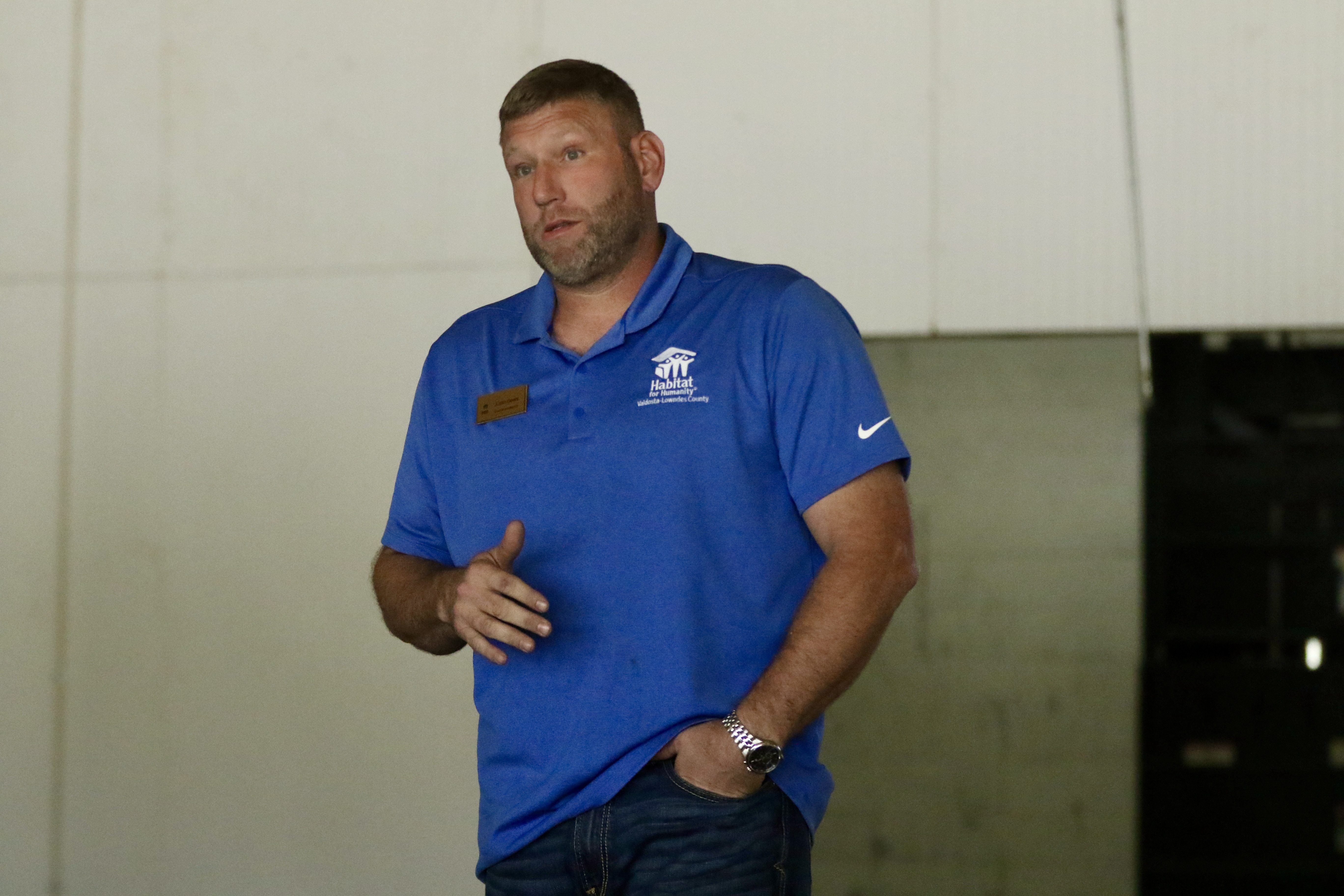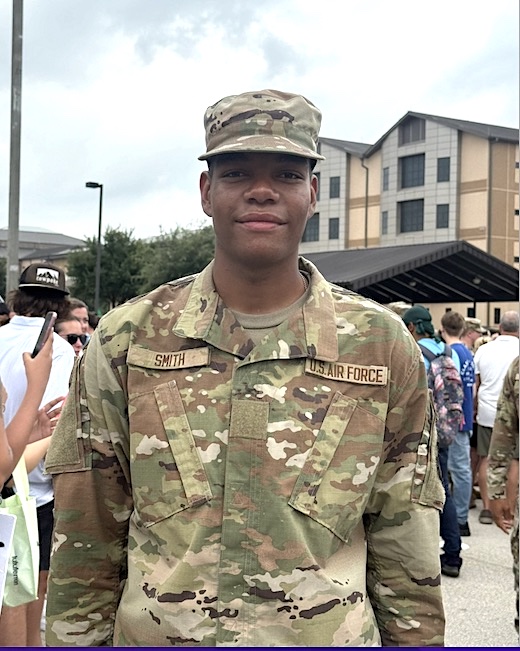An eye for an eye: Life behind bars
Published 11:00 am Sunday, August 28, 2011

- Valdosta State Prison has been the site of several violent attacks in recent months. The Times has made several attempts to discuss these incidents with Department of Corrections officials, with little success.
WEAPONS
Inmates create “pokers” from melted plastic.
Think about the hard plastic found melted in a fire’s ashes. Now imagine that plastic melted, folded, and shaped over and over, similar to a blacksmith folding and hammering hot steel into a hardened sword. Inmates use lighters to melt plastic trash bags, twisting them into pokers that are described as hard as steel. Inmates can use a poker to bludgeon or stab.
Inmates create “shanks” from numerous items.
They steal bolts from buffing machines. They take the weather-stripping from doors. They tear pieces of metal from fencing. These items are filed to points, sharpened into blades. Handles are created to protect their hands from the metal.
Wrist bracelets are often attached to the pokers and shanks. These cords ensure the weapon stays with the inmate, ensures it does not slip easily away from him, similar to the cords that keep Wii controls from slipping loose and crashing into a TV screen.
In one incident, an inmate combined the blade of his shaving razor and his toothbrush to create a weapon. He used this weapon to slice the throat of another inmate. The other inmate survived despite the best efforts of the toothbrush blade to take off his head.
On occasions, prison officers confiscate some of these weapons. Such confiscations can look like the arming of a do-it-yourself arsenal. They confiscate several pokers, shanks, even machete-type weapons created from plastics and vandalized metal in one crack-down in one area of the prison.
Arguably, when traced to their original uses, these aren’t weapons. They are bolts, weather-stripping, plastic.
Corrections officers are armed only with an ink pen to write a disciplinary report if a weapon is found.
CONTRABAND
Efforts are made to bring “real” weapons and other items into the prisons.
Take the case of a Lay’s potato chip bag discovered in the vehicle of a visitor to a South Georgia prison. Inmates can have chips but this bag contained more than snacks.
This potato-chip bag contained a half pound of marijuana, a cell phone, a handgun and several rounds of ammunition. This care package was reportedly to be used for an inmate escape. It was to be dropped in the location that the visitor was told in visitation, to be retrieved as “trash” by the inmate detail the next day.
More common are cell phones tossed over prison walls.
Not all of the towers are manned in some prisons. In times past, two Department of Corrections vehicles patrolled the prison perimeter. These vehicles are meant to ensure that inmates make no plans to penetrate the perimeter. They are also intended to ensure no civilians get too close to the outside of the fence.
In at least one South Georgia prison, one vehicle patrols the perimeter while the second remains parked. A person outside of the prison gauges which towers are empty. He or she waits until the patrol vehicle passes. They toss items over the fence at a designated spot where an inmate picks up the items.
What corrections officers are discovering are mostly bags filled with cell phones being tossed over the fence. Prisoners are not allowed to have cell phones.
Other items tossed over the fence include marijuana, tobacco, rolling papers, hacksaw blades. On one occasion, contraband was discovered hidden in a basketball.
UNLOCKED
Inmates often try moving more freely within prison. They shove wet tissue into the depression in a door jamb’s lock plate. The tissue hardens like concrete, preventing the door from locking. To ensure that corrections officers cannot remove the wet tissue easily, some inmates also place razors in the groove.
Corrections officers use pencils to dig out the tissue. Once dry and hardened, officials must use screwdrivers to remove the packed tissue.
If not removed, inmates have access in and out of the affected door.
IT’S ALL RELATIVE
In some cases, the DOC has discovered that a corrections officer may be related to an inmate in the same institution. Instead of ensuring beforehand that no inmate has a relative on staff, these situations are often discovered after the fact. It raises a concern among corrections officer — the worry of what may happen if they discover that a fellow officer is an inmate’s sibling, for example, at a crucial moment. Where does the corrections officer’s loyalties lie then?
PASS THE BUCK
Inmates often create a drink concoction called “Bombays” from items given to them. Think of it as an energy drink mixing coffee, cola, any caffeine, with chocolate, medicine and other items “that will give them a buzz.” This drink is usually made and consumed in the open.
Their “buck,” however, is more covert. Buck is inmate booze. They use whatever they can get that will ferment. They steal extra oranges, bread, sugar, potatoes, etc.
They hide their buck in plain sight. Inmates pour it into cleaning containers. They add candies like Red Hots while preparing the buck. These candies add to the booze’s flavor, but it also gives it the appearance of the pink soap supplied to inmates. Placed in a cleaning container, the buck looks like a bottle of soap among the inmate’s possessions.
INMATE DIET
Some food boxes arriving at South Georgia prisons are marked for “inmate consumption only.”
Beans are served at every inmate meal. Peanut butter and jelly are available at some meals. Cold cuts. Powdered eggs are offered for breakfast. Three meals a day Mondays through Fridays. Two meals Saturdays and Sundays.
GANGS
The two most prolific gangs behind bars are Gangster Disciples, mostly black inmates, and MS 13, a Hispanic gang. MS 13 is also slang for the Mexican Mafia. And there are a half dozen different gangs in the Folk Nation, of which Gangster Disciples is a part.
If inmates were not part of a gang before beginning their sentence, they join one as soon as they are incarcerated. It’s a way of life. And the only way to ensure protection is to align with others.
Gangs generally are divided by race. They keep rape lists. Hit lists. Any sign of disrespect will get your name on a list. Even if an inmate gets transferred to another prison, the gangs have connections. One call is all it takes.
“Dirty” guards pass them contraband. So do other connections. There are many ways to get cell phones, marijuana, cigarettes, and weapons behind bars. One Ware County guard was arrested a month ago for providing cell phones and marijuana to inmates.
Inmates are intelligent. All they have is time. Why? Because there is no rehabilitation anymore. They are merely being housed. The prison programs don’t work, especially for lifers with nothing else to lose. So they have plenty of time to figure out ways to beat the system.
Kay Harris contributed to this story.





